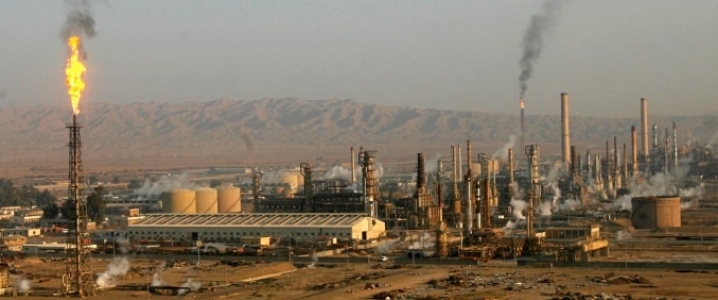A month after Iraq’s general election on May 12, the political divides and bickering over the results threaten to plunge OPEC’s second-largest oil producer into an institutional and constitutional crisis. A crisis that could undermine Iraq’s oil policies and delay contracts and investments in its oil sector.
The hung parliament emerging from the elections was already sure to delay the formation of a new government because none of the coalitions and alliances won enough seats to rule independently. The most recent political events, however, suggest that Iraq faces more delays and maybe even a constitutional crisis, which could significantly impact Baghdad’s oil industry.
Last week, the parliament ordered a manual recount of the ballots, after outgoing Prime Minister Haider al-Abadi—whose coalition was only third in the elections—said that there had been irregularities in the electronic voting counting.
The alliance of populist Shiite cleric Moqtada al-Sadr, who has a very strained relationship with the United States, scored a surprise victory in Iraq’s elections. The alliance won 54 seats in the 329-seat Parliament, so it will need to form a coalition to govern. Al-Sadr himself cannot be named prime minister because he didn’t run in the elections. Iranian-backed militia leader Hadi al-Amiri came second, while al-Abadi’s coalition was only third.
The parliament passed amendments to the election law last Wednesday, invalidating the results from overseas voters and most internally displaced votes. The parliament also ordered the Independent High Elections Commission (IHEC) to manually recount the votes nationwide, suspended the leadership of the commission, and replaced them with nine judges.
But the election commission is opposing the parliamentary order for a manual recount, and said on Thursday that it would “use its constitutional and legal right to challenge the amendment of the election law (allowing the recount)...because it contains a number of irregularities,” in a statement carried by S&P Global Platts.
On Sunday, a warehouse where half of Baghdad’s ballot boxes had been stored caught fire, and PM al-Abadi said that it was a “plot to harm the nation and its democracy.” According to Interior Minister Qasim al-Araji, “not a single box was burned,” but outgoing lawmakers—especially those that lost their seats in Parliament—are already calling for a repeat of the elections. The coalitions that did well in the May 12 vote oppose a re-run of the elections.
The standoff between various institutions and coalitions will further delay the process of forming a new Iraqi government and probably put the awarding of any new oil contracts on hold, due to uncertainties over who has the authority to sign them. Related: The Real Reason For Higher Gas Prices
In addition, some of the newly-elected lawmakers have said that Iraq may be better off out of the OPEC deal, and that the country should be allowed to export as much oil as it wants. Some of the new lawmaker-elects are even calling for a revision of the recently signed oil contracts, which could worsen the investment climate at a time when Iraq hopes to rebuild many of its industrial sectors, including oil infrastructure and refineries, after it declared victory over Islamic State in December last year.
Iraq won’t have a new government in time for OPEC’s meeting on June 22, at which point the cartel is expected to discuss the possibility of reversing some of the production cuts to offset supply disruptions from Venezuela and possibly Iran.
One potential factor of continuity and stability in Iraq could be the fact that Jabbar al-Luiebi, the incumbent oil minister of OPEC’s second-largest producer, won a seat at the Parliament with wide support in the southern province of Basra, where most of Iraq’s biggest oil fields are located.
But the political divides and the prospect of a prolonged constitutional crisis risk undermining confidence in Iraq’s new oil contracts and Iraq’s future oil policies.
ADVERTISEMENT
By Tsvetana Paraskova for Oilprice.com
More Top Reads From Oilprice.com:
- Geopolitical Tensions Reach Boiling Point Ahead Of OPEC Meeting
- Permian Boom Jeopardized By Pipeline Troubles
- Iran: Oil Prices Could Jump To $140 On U.S. Sanctions


















